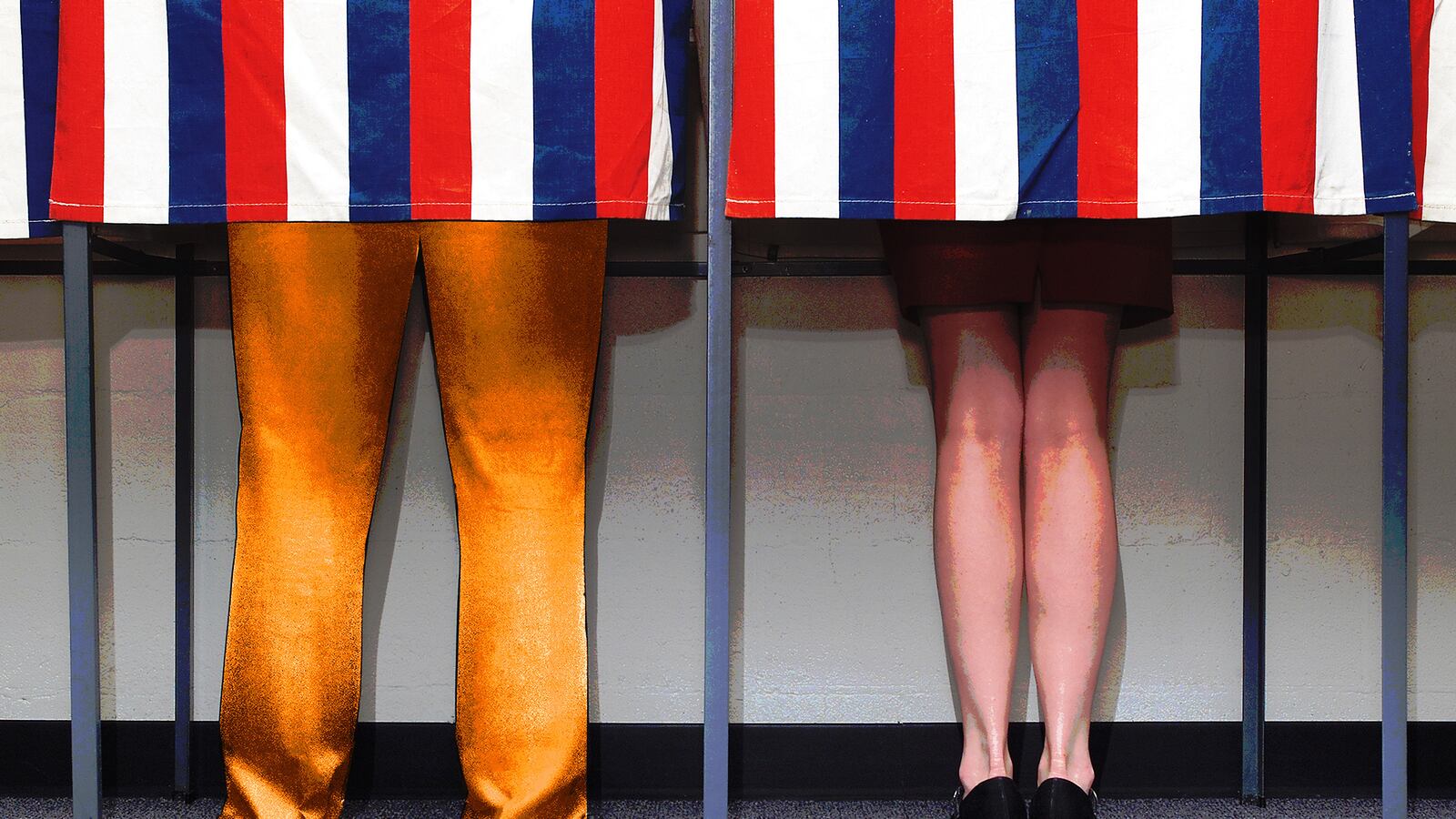Recently, Hillary Clinton dramatically put voting rights back on the national agenda with an audacious call to register every American citizen when he or she turns 18. Voter ID laws are not new issues in our politics, but Clinton’s full-throated appeal felt serious and sincere: Perhaps we will finally tackle the perverse voter disenfranchisement of minorities and the poor that still persists throughout this country.
But I’ll go her one better. If Hillary is serious about social justice and equality, I hope she does not overlook one nearly voiceless population that needs to be included in this debate: ex-convicts returning home from prison, and, yes, even incarcerated prisoners.
The United States has the most prisoners of any developed country in the world, and it has the largest total prison population of any nation. Period. America’s prison population has increased 800 percent since 1980, and much of the increase is due to harsher punishments for non-violent crimes. As a result, more than 1.57 million inmates are behind bars in federal, state, and county prisons and jails at any one time. And when you consider the estimated 12 million Americans who cycle through county jails for periods of less than a year, the total number of Americans behind bars can jump to an estimated 2.4 million.
When you factor in released inmates who are barred from voting due to felony convictions, the number of voter-disenfranchised Americans grows to an estimated 5.85 million, or 2.5 percent of the nation’s voting population, according to a recent report by The Sentencing Project.
Additionally, since America consists of a patchwork of laws varying from state to state regarding the voting rights of convicted felons, many felons who have the opportunity to vote are simply unaware or are unable to overcome the bureaucratic hurdles that would allow them to vote, and as a result they become de facto disenfranchised.
Some states allow felons to vote if they are on probation, but not if they are on parole. In Tennessee a felon’s voting rights can be revoked if he is late on child support payments.
According to Myrna Pérez, deputy director of the Brennan Center’s Democracy Program, “There are some states where it does not matter what you did, how long ago it was, how young you were, etc. If you have a felony conviction in the past you have lost your right to vote permanently, unless the governor specifically decides that he or she wants to pardon you.”
Yet finding various creative ways to keep certain Americans off the voting rolls has not been adopted by all of America. Vermont and Maine have both bucked the trend of voter disenfranchisement and allow inmates to vote.
In fact, Vermont’s 1793 Constitution stipulates that residents can lose their right to vote only if convicted of voter fraud.
So to the Republicans such as New Jersey Governor Chris Christie who have already scoffed at Clinton’s voter expansion proposal for fear that it would create voter fraud, and would inevitably deride the expansion of voting rights to felons and inmates, the State of Vermont successfully handled this issue more than two centuries ago.
At a national level, one of the biggest questions regarding inmates voting is what voting precinct these votes fall in. Many prisons are located in rural areas that are represented by Republicans at the state and national level, and as African-Americans make up a disproportionate size of the prison population, many conservative areas would be less inclined to open voting to a demographic that leans heavily Democratic.
The logical extension would be that we allow prisoners to vote absentee ballot from their known address at the time of conviction, or the address they intend to return to upon release, and not for the one where their detention facility is located.
The debate on extending voting rights to inmates and convicts is more than just an individual rights or social justice issue. It makes sense from a public policy and law enforcement perspective too. Voting has been shown to have a rehabilitative effect that can reduce recidivism and thereby, crime, and save governments millions of dollars. Recidivism has been shown to drop by at least 10 percent when voting has been extended to ex-felons.
“It is important for voting rights to be extended to those that are incarcerated so that they can remain connected to the communities that they will ultimately return to,” said Laurin Hodge, the president and executive director of Mission Launch, a non-profit that works to reacclimatize the previously incarcerated into civil society. “Ultimately prison should be about rehabilitation and not ongoing punishment.”
Additionally, even for those with life sentences or on death row, the act of voting can have an impact that reverberates throughout their communities back home.
It is becoming more apparent that voting is a responsibility that needs to be fostered, and many people develop the voting habit from observing previous generations. Voting builds stronger communities of people who are more likely to participate in the democratic process. Similarly, inmates who are able to vote will feel more connected and invested in their communities, and can set a positive example to the outside world while they are behind bars.
It may be easy to discredit how informed inmates may be, but data are emerging showing that “informed” voters by and large vote along party lines and are not as well versed on the issues as we would like to believe. And we need not forget that prisoners have plenty of spare time, and are one of the few demographics that could leisurely read two newspapers a day and still find time to watch the evening news.
The argument for keeping the incarcerated and the newly released off the voting rolls is based on an archaic punitive disciplinary structure that we need to move beyond. Maintaining an electoral process that actively works to disenfranchise nearly 3 percent of eligible voters is a structure that no democratic nation should support.





